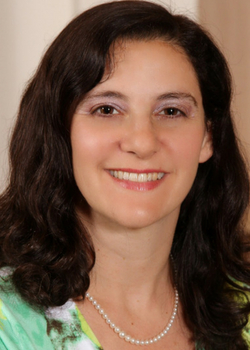Last year on this week's Torah portion, I was in Cancun, Mexico for a vacation. I was at a crossroads in my life and unsure how to move forward. I was deciding between two professional avenues and had been debating internally to no avail.
Then we spent the day tubing down a river. The river had a gentle, almost imperceptible current. Along the way, I discovered that the current was stronger than it seemed. I felt a huge difference between when I was swimming with the current or against it. When I was with the current, I moved swiftly stroke after stroke in one direction. However, at one point, I ended up too far to the side and got stuck in an inlet. To get out, I needed to swim against the current which was difficult. It took all my strength to get back to the main part of the river.
At the bottom of the river, I realized that one of my options felt like swimming with the current and the other felt like swimming against it. My choice became clear.
This week's Torah portion is also at a crossroads. The double portion Mattot-Masei(which means Tribes-Journeys) concludes the book of Numbers. At the end of the each book of the Torah, three special words are recited — "Chazak chazak v'nitchazek" which means, "strong strong, and we will get stronger."
I once learned a poignant lesson about the last word of each book of the Torah. The book of Bereshit (Genesis) tells the story from the creation of the world through the death of Joseph. The last word of the book of Genesis is b'mitzrayim (which means "in Egypt"). This word is a perfect segue into the book of Shemot (Exodus) which is all about the Israelites' slavery and the Exodus from Egypt.
The last word of the book of Shemot (Exodus) is ma'saehem which means "their journeys" which leads beautifully into the book of Vayikra (Leviticus) which is about the people's desert travels. The last word of Vayikra is Sinai, the Mountain on which the Israelites received the Torah. The last word of Bamidbar (Numbers) is Jericho, a place near the Jordan River which was one of the last stops along the trek. Finally, the last word of Devarim (Deuteronomy) is Israel, the ultimate destination.
Taken together, those five words: "b'mitzrayim (in Egypt), ma'saehem (their journeys), Sinai, Jericho and Israel" are a concise summary of the Torah. These words are like a current flowing through the Torah — pulling from one book to the other, moving the Jewish people forward.
In reflecting back on the day on the river, the current became to me a metaphor for God. Each of us has a divine current within our lives. As in the river, the current alone is not enough; we still need to swim. Likewise, the presence of God in our lives does not exempt us from taking action. Yet we can notice when our efforts feel like they're in concert with or contrary to our inner current. Sometimes, we need to allow the current to take us in a direction we didn't expect. God's plans for us may be different than the course we mapped out for ourselves. Following God's lead, we may find blessings we never could have anticipated.
As summer creeps towards fall, and Numbers moves to Deuteronomy, let's swim along with the divine current within our hearts. Chazak Chazak v'nitzchazek: Strong, strong, and we'll grow stronger.
Shabbat Shalom!

